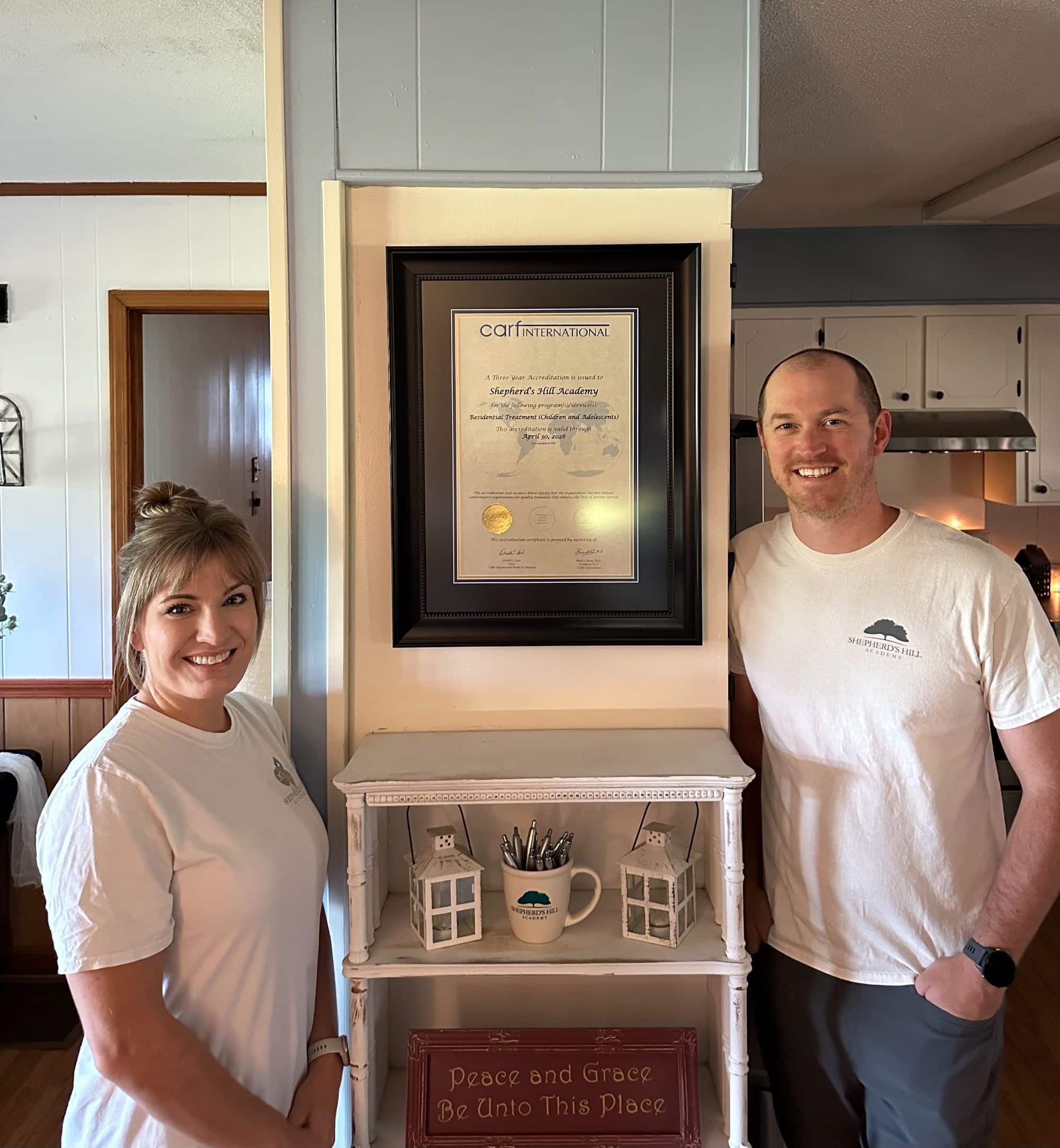
Shepherd’s Hill Academy Announces Leadership Transition: Allison Wallace Named New CEO
The new CEO brings nearly two decades of experience with Shepherd’s Hill Academy to the position, elected by the organization’s Board of Directors. Martin, GEORGIA (SEPTEMBER 1, 2023) – Shepherd’s Hill Academy (SHA) is proud…
Read More
SHA Succeeds in Obtaining 3-year CARF Accreditation
Therapeutic Residential Teen Program, Shepherd’s Hill Academy, Announces Three-Year CARF Accreditation. The Georgia-based rehabilitation program officially achieved accreditation this month, marking a milestone for the teen-focused organization. Martin, GEORGIA (June 1, 2023) – Georgia-based Shepherd’s…
Read More
4 Ways We Help Troubled Teens at Our Therapeutic Boarding School
Shepherd’s Hill Academy has been serving families with teens in crisis since 2001. Over the years, we’ve established multiple ways we can help troubled teens who attend our therapeutic boarding school. In that time, parents…
Read More
Why a Nature Based Therapy Program Might Just be What Your Teen Needs
For many parents, the thought of sending their child to a youth wilderness program or nature-based program seems daunting (if not terrifying). Will my child be safe? Is this component even effective? Do they really…
Read More
How to Choose a School for Your Child: 6 Questions to Ask
Sometimes, parents are unsure of how to help their child best, and this scenario is particularly the case when it comes to choosing a school program for a child’s education. Children spend the majority of…
Read More
Why American Kids are Starving
America’s culture has produced a strange dichotomy. That is; affluent kids appear starved, though not in the way you may think. We’re not talking about food or water. We’re talking about a completely different form…
Read More
